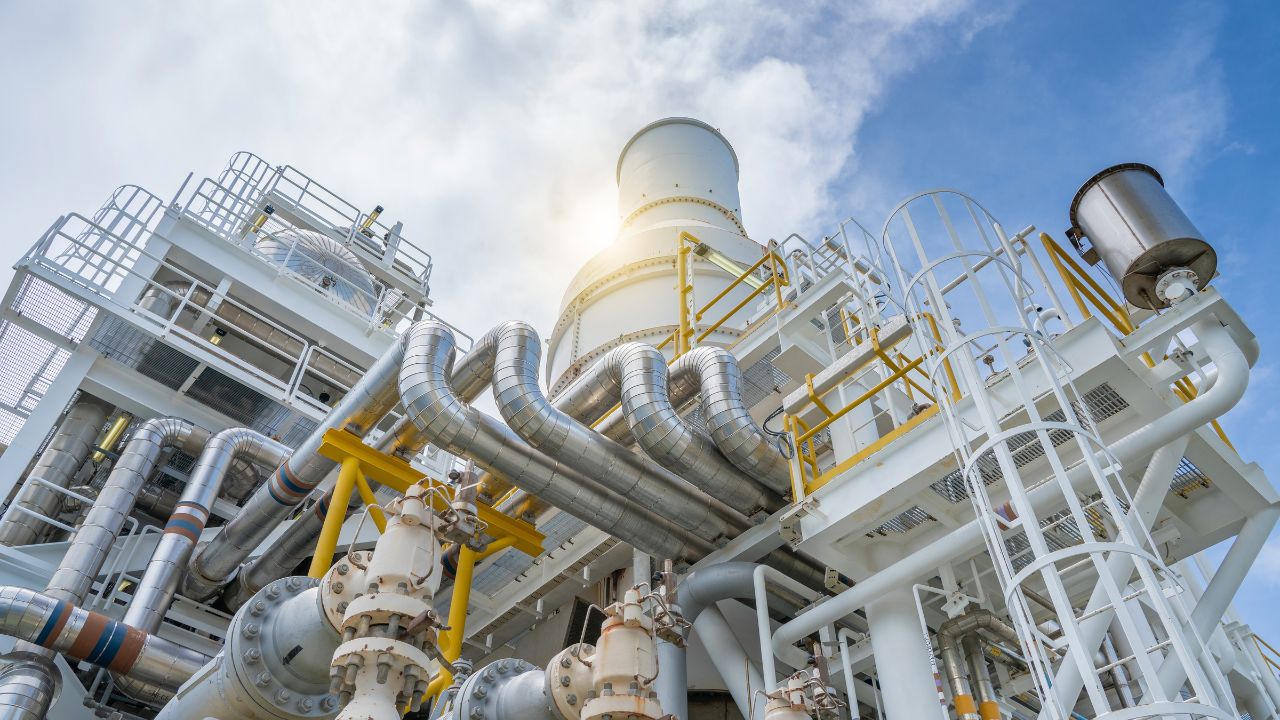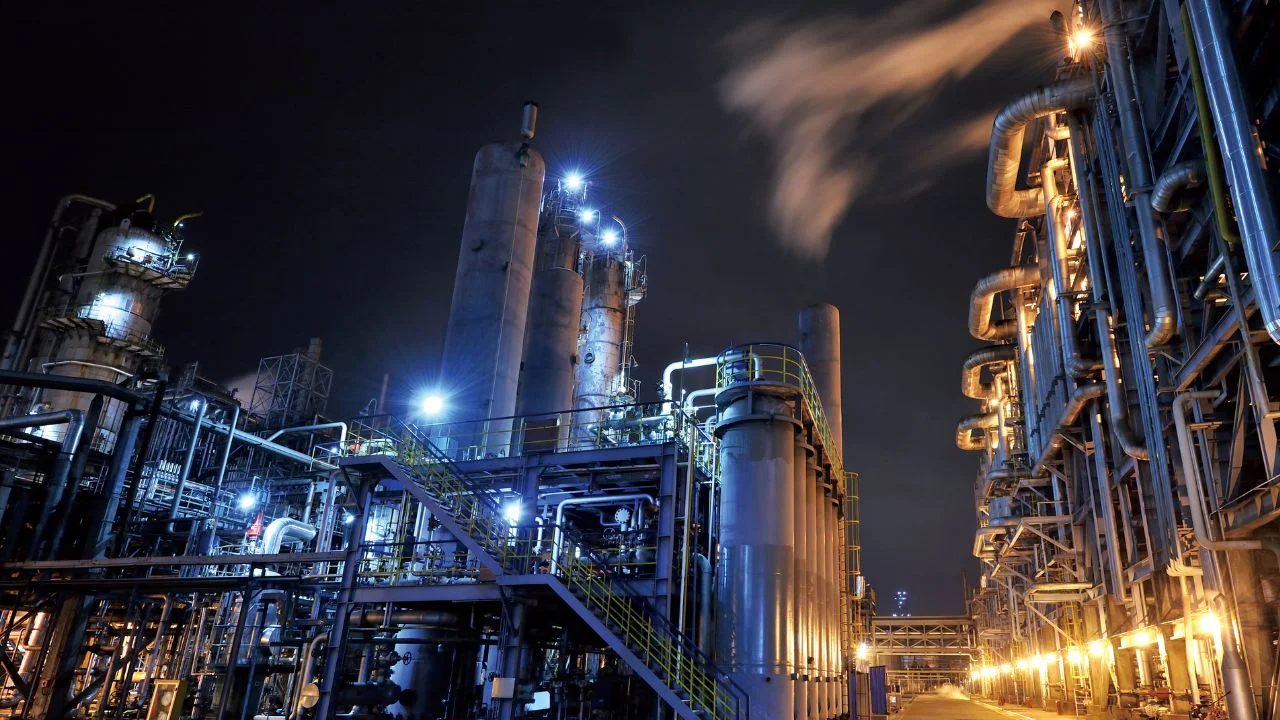What are Petrochemicals? The Ultimate Guide
17 Dec, 20248 minsPetrochemicals are integral to modern society, serving as the foundation for countless comme...

Petrochemicals are integral to modern society, serving as the foundation for countless commercial products the global population uses daily. Primarily derived from petroleum and natural gas, these chemicals are transformed into various materials supporting multiple industries, from the healthcare sector to the food industry. The petrochemical industry is a global mainstay valued at over $600 billion in 2023, contributing to significant economic growth and opportunities for businesses and talent.
Due to the enormity of the petrochemical industry, we’ve produced this blog to provide insight into this niche area of the chemical sector. We’ll highlight the petrochemical production process, asking the question, ‘What are petrochemicals used for?’ before detailing its economic impacts.
In this blog, we will explore the following:
- What are Petrochemicals?
- What are Petrochemicals Used For?
- Economic Impacts of the Petrochemical Industry
What are Petrochemicals?
Petrochemicals are compounds of petroleum and natural gas. They form the foundations of the world's most commercially used and relied-upon products, from plastics and medicines to electronics and renewable technologies like wind turbines and solar panels.
Defined by their chemical structure, petrochemicals are segmented into three categories: Aromatics, Synthesis Gas (SynGas) and Olefins.
- Aromatics: These colourless liquids, commonly used as the building blocks for consumer products like detergents and paints, include benzene, toluene, and xylene.
- Synthesis Gas (SynGas): Primarily used to create ammonia and methanol, which are vital components for producing fertilisers and synthetic fuels, Syngas mainly comprises carbon monoxide and hydrogen.
- Olefins: Ethylene, propylene, and butylene are the common olefins that form the foundations of plastics, fibres, and resins.
In addition to these three categories, the petrochemical process creates these core products:
- Benzene: Essential for pharmaceuticals, electronics, and food packaging
- Ethylene: Used in products like electronics, paper, detergents and adhesives
- Methanol: Important in construction and insulation
- Naphtha: Crucial for plastic production
- Propylene: Found in paints, textiles, furniture, and food packaging
- Toluene: Used in sports equipment and inks
These petrochemical products are used in various industries and play an essential role in the manufacturing supply chain, making up the building blocks for a range of commercial products. The sheer scale of petrochemical production is huge, with complex facilities worldwide, all contributing to the globe's most in-demand products.

Here is a breakdown of the petrochemical production process:
- Extraction and Refining
Petrochemical production begins at the extraction and refining stage. Here, crude oil is taken from offshore reservoirs and sent to refineries, where it’s processed into raw materials. Natural gas, including ethane and methane, can also be used as a direct source of petrochemicals.
- Distillation
The crude oil is then distilled at the refinery. It is heated and separated into distinct hydrocarbon fractions based on their boiling points. This stage of the petrochemical process yields feedstocks like diesel and other petroleum gases.
- Cracking
These petrochemical feedstocks stem from heavier natural gas and crude oil fractions, which must be broken down into smaller hydrocarbon molecules through a process known as cracking. This is done through thermal cracking, which uses heat to break down hydrocarbons and catalytic cracking, which uses catalysts to accelerate the breakdown process.
- Reforming
At this stage, the structure of the hydrocarbons is rearranged at controlled pressures and temperatures to produce aromatic products, which form the building blocks for petrochemicals.
- Polymerisation
The smaller hydrocarbons are combined to form larger molecules known as polymers. These polymers form the foundations of plastics and other synthetic materials.
- Oxidation
Petrochemicals undergo chemical reactions, including oxidation, to produce various compounds, including converting hydrocarbons into alcohols and organic acids. These compounds are classed as intermediates, which can be further processed to create a range of commercial products.
- Fractionation and Purification
The products of these various chemical reactions are separated into a range of fractions and purified through separation methods like distillation, filtration and solvent extraction.
- Distribution
The final phase of the petrochemical process involves storing the products in tanks. These are then transported to manufacturers and end-users, where they are used to create a wide array of consumer and industrial products.
As the process outlined above occurs in petrochemical plants, discover more about the chemical industry by reading our blog on the 5 Biggest Chemical Plants In The World.
What are Petrochemicals Used For
Petrochemicals are essential in producing an extensive range of products the global population uses and relies upon daily. Plastics are one of the most prominent examples of petrochemicals, with ethylene being a core petrochemical used for products such as plastic bags and bottles. Due to their durability and versatility, the plastics produced from petrochemicals are found in various applications, including medical devices and food packaging.
Here some of the key industries in which benefit from the use of Petrochemicals:
Healthcare
Healthcare is a common sector where examples of petrochemicals can be found. Petrochemicals are used in the manufacturing process of medical resins and plastics. These materials help make products like gloves, syringes, and other medical devices essential to the medical industry's daily operations.
Petrochemicals also add value to the purification, sterility and hygiene of medical devices, including the packaging they're supplied in. They also help purify medicines used to treat serious conditions like AIDS and cancer.
Cosmetics and Personal Care
Examples of petrochemicals are also found in various products across the cosmetics space. These products include makeup, perfumes, hair dyes and shampoos. Petrochemicals enhance the performance, texture and shelf life of cosmetic products. Everyday household products like detergents and soaps also use petrochemicals, making them a core part of personal care and daily hygiene.
Agriculture and Construction
The petrochemical industry also supports the agricultural sector. Petrochemicals are used to produce fertilisers and pesticides, which are integral for enhancing crop yield, care, and security. They are also used for construction materials like adhesives, paint, insulation, lubricants and safety glass.
Food Production
Additionally, examples of petrochemicals are heavily used in the food sector. Petrochemical production contributes to the formation of food preservatives, which are essential to extending the shelf life and freshness of packaged foods during storage and transportation. They are also present in additives and colourings used to improve the appearance and taste of many food products.
Electronics and Renewable Energy
Electronics is another sector heavily reliant on the petrochemical industry. Petrochemicals produce components like insulators and semiconductors for various smart devices. In the renewable energy space, petrochemicals support the production of technologies driving sustainable power efforts like wind turbines and solar panels.
Petrochemicals are also vital to the production of synthetic fibres, which are used in clothing like nylon. Other examples of petrochemicals can be found in the production of crayons and marker pens, sunglasses, balloons, nappies, carpets, and furniture. Ultimately, examples of petrochemicals are found in almost every aspect of modern life.
As the demand for new technologies, research, and development in these industries grows, businesses are increasingly turning to specialised talent acquisition strategies to meet their workforce needs. At NES Fircroft, we supply engineering and technical talent, particularly for roles in new technology development and R&D. With our extensive global network, we help companies secure the expertise they need to drive innovation and maintain a competitive edge.

Economic Impacts of the Petrochemical Industry
Globally, the petrochemical industry is poised to exceed $1 trillion by 2030 due to the continuous demand across various sectors. This rise in demand is expected with the decline in fossil-derived fuel consumption in industries like transportation. Petrochemicals are and will continue to be seen as a driving force for future oil demand within the energy sector worldwide.
According to Statista, as of 2022, China leads the way in petrochemical sales, making up nearly half of the global market. In 2024, they’re expected to add 18.7 million tonnes of chemical production capacity per year, which will equal 81% of the total increase in capacity worldwide.
The petrochemical industry contributes significantly to the UK economy. According to the consultancy IBISWorld, this figure is forecasted to maintain its growth, generating over £7.3 billion in revenue - an increase on the £7.2 billion recorded in 2021.
Beyond its financial benefits, the UK petrochemical production space is expected to provide over 15,800 petrochemical jobs, making it a major asset to the UK's industrial space and providing growth opportunities to people, communities, and related sectors. These roles could be anything from reservoir, drilling, maintenance and environmental engineering jobs to project management and sales positions.
McKinsey has also said there is room for growth across global regions. In North America, margins are forecasted to improve as the market shifts to new capacity additions. As of 2022, Statista stated that the US has the second-largest share of petrochemical sales, contributing to shares of 9.5%.
In 2023, the Middle East refining and petrochemicals market capacity was estimated at 12.8 million barrels per day. According to McKinsey, the Middle East is expected to focus on moving downstream, with significant investments in crude-to-chemicals refineries, further strengthening its position in the global market.
The petrochemical industry's global nature means that its economic impact is far-reaching. Petrochemicals influence everything from employment and trade balances to energy consumption and technological innovation. As the industry grows, it will continue to play a significant part in economic development worldwide.

Final Thoughts on the Petrochemical Industry
The petrochemical industry is a cornerstone of modern life, driving the production of essential materials that contribute to nearly every aspect of our daily lives. Petrochemicals are fundamental to diverse industries and products, from healthcare to agriculture to electronics and renewable energy.
Economically, this sector is a major player worldwide, with countries like China and the UK seeing substantial growth and job creation. As demand continues and new technologies emerge, the petrochemical industry will remain pivotal to global economic development and the future of energy.
Discover more about the chemical sector by reading our piece on Highlighting the Global Chemical Engineering Skills Gap.
NES Fircroft Supports the Petrochemical Industry
If you’re looking for passionate people to grow your petrochemical business, NES Fircroft's contract and permanent talent acquisition services are here to support you. Alternatively, if you’re a professional searching for the latest petrochemical jobs, we can help you achieve your career goals.
Our expertise in chemical recruitment comes with an extensive network of global talent and clients. Whether you’re looking to enhance your business or progress your career, we’ll work closely with you to understand your pain points and provide a tailored solution to overcome your recruitment-related challenges.
Contact NES Fircroft today to find out how we can meet your chemical recruitment needs.









